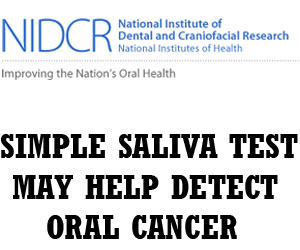
A number of studies in the past have revealed the uses of saliva as a diagnostic tool. However, this research is the first one to globally assess the saliva protein levels from oral cancer patients. The researchers believe that the discovery of these biomarkers could open new pathways for developing clinical tools that may help in the non invasive diagnosis of oral cancer.
The distinct research was led by David T. Wong, associate dean for research, Los Angeles School of Dentistry (LASD), University of California and is a part of the National Institute of Dental and Craniofacial Research (NIDCR)’s Human Saliva Proteome Project that is aimed at identifying and cataloguing the proteomic components of saliva in healthy subjects.
“This test is currently not available, but we are developing point-of-care micro fluidic devices to detect these markers that we can use in clinical trials,†mentions Shen Hu, Ph.D., assistant professor of Oral Biology and Proteomics at the University of California, Los Angeles School of Dentistry.
The research involved saliva samples of around 64 patients with oral squamous cell carcinoma and 64 healthy patients. Equipped with immunoassays, the scientists confirmed the validation of five biomarkers namely M2BP, MRP14, CD59, profilin and catalase. The presence of these biomarkers further assured the certainty of oral cancer nearly 93% of the time as each of them was also individually linked to oral cancer. The samples showed a 90% sensitivity and 83% specificity for oral squamous cell carcinoma.
While present detection methods include a thorough examination of the mouth, typically by a dentist, followed by biopsy of abnormalities, the new study reveals a very simple way to collect and process the saliva.
The researchers additionally mention that an extensive further validation is needed for these potential biomarkers which including large-scale clinical trials among individuals with oral cancer and those at high risk for developing oral cancer.
A recent edition of the Clinical Cancer Research, a journal of the American Association for Cancer Research has published these findings.
